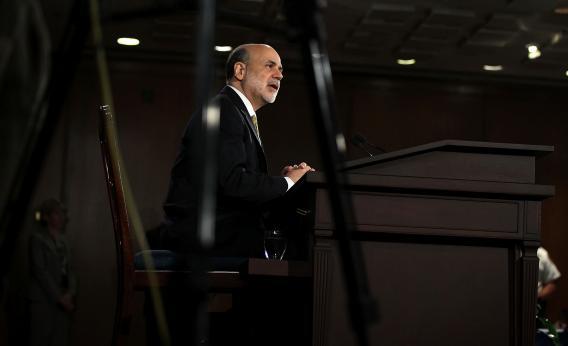I last wrote about the panacea canard with regard to Bundesbank head Jens Weismann, and it’s a sign of how far we’ve fallen that at his press conference this week Ben Bernanke was cribbing hard money talking points from Germany:
Monetary policy is not a panacea. Monetary policy by itself is not going to solve our economic problems. We welcome help and support from any other part of the government, from other economic policy makers. Collaboration would be great.
Again, this is nonsense. There are, in life, no panaceas. There are only institutions that are functioning well or functioning poorly. If America had more widely available preschools, then over the long term, the productivity of our workforce would increase. But excellent education is no panacea; you could still have a level of aggregate demand that’s inconsistent with full employment. Alternatively, if the Federal Reserve wanted to generate a level of aggregate demand that’s consistent with full employment, we would still have a very inadequate system of early childhood education in the United States. If Baltimore had a lower murder rate, that wouldn’t reduce traffic jams in Los Angeles. For that matter, if Baltimore had a lower murder rate, it wouldn’t generate a level of aggregate demand consistent with full employment. If the Federal Reserve generated a level of aggregate demand consistent with full employment, that would make Southern California’s traffic problems worse.
So, yes, monetary policy is no panacea. If you want to improve education, you have to improve education. If you want to fight crime, you have to fight crime. If you want to manage transportation infrastructure well, you have to manage your transportation infrastructure better. But if you want full employment, you have to have full employment. Israel currently has many problems that the United States doesn’t have. Monetary policy is no panacea. But Israel doesn’t have the problem of mass unemployment because monetary policy can solve that problem. The question for Bernanke isn’t why he doesn’t solve the problems he can’t solve, it’s why he doesn’t solve the problems he could be solving.
